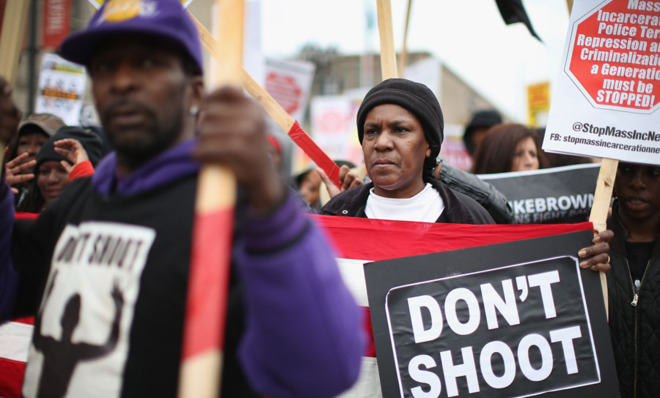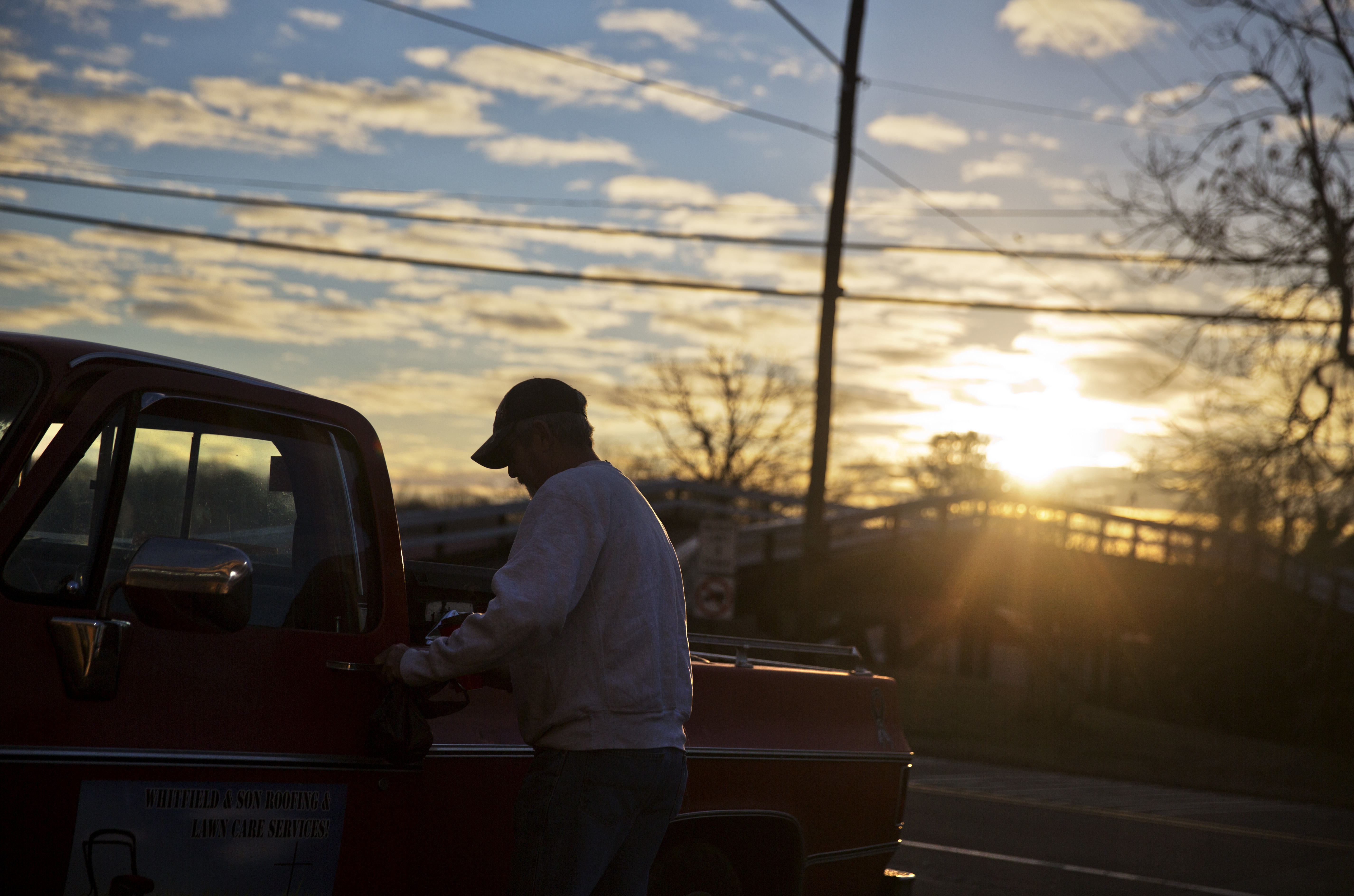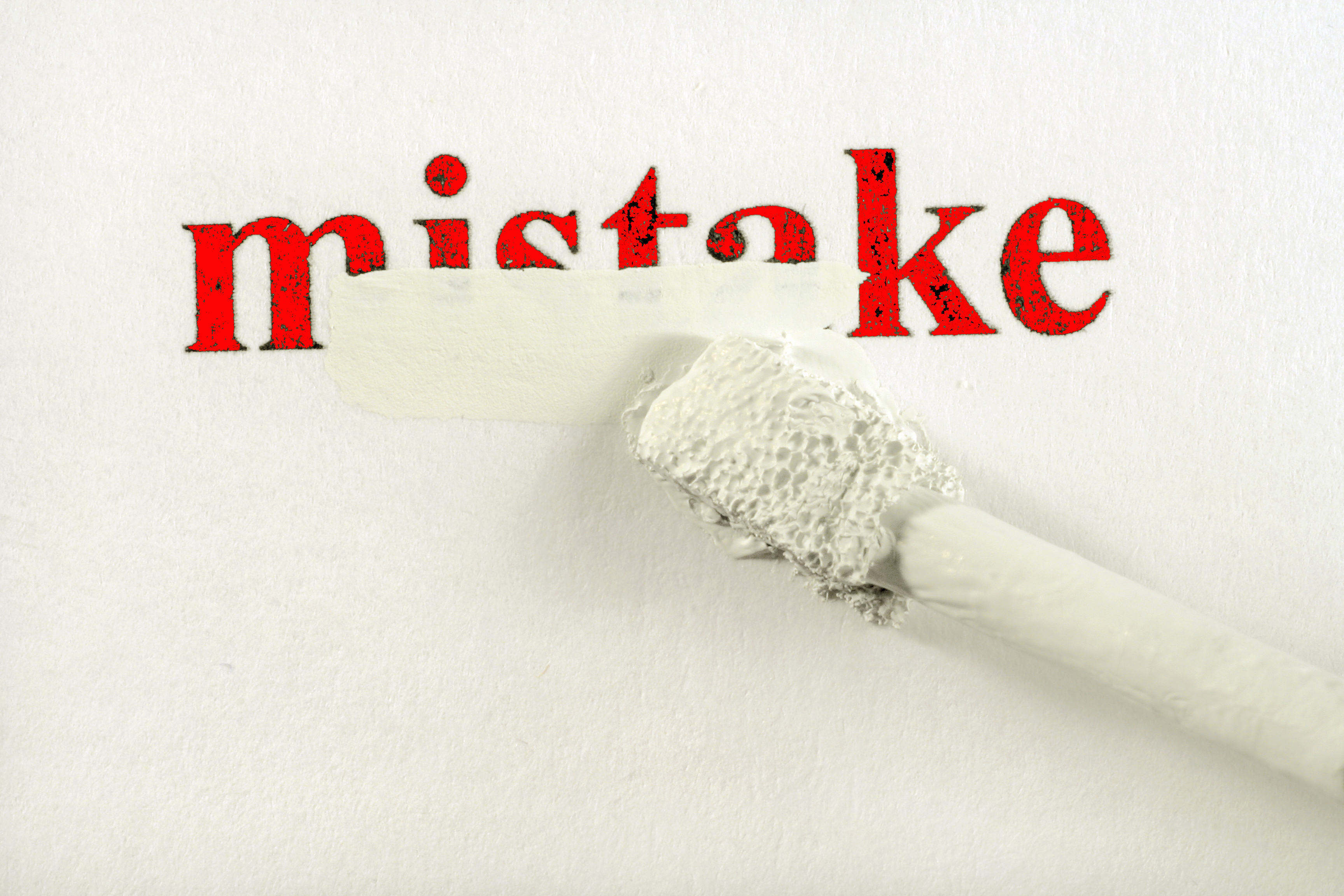Did the media get Ferguson wrong?
What we thought we knew about Ferguson is very likely not what actually happened


A free daily email with the biggest news stories of the day – and the best features from TheWeek.com
You are now subscribed
Your newsletter sign-up was successful
In August, after a Ferguson, Missouri police officer shot and killed a young, unarmed black man named Michael Brown, the reaction by local residents, civil rights activists, and the media instantly went nuclear. The DNA of our political and legal systems rest on principles of equality and color-blindness, and here was yet another example of a major genetic mutation that we've been unable to fix: young black men being murdered by the police because they're young and black. Still. Even in 2014, this happened, at a time when adults are supposed to be racially enlightened.
Ferguson checked several boxes. The town was mostly black and its police department was mostly white. The basic story was black and white, too. Eyewitnesses saw officer Darren Wilson shoot his weapon, over and over, at Brown. They saw him shoot Brown in the back. They saw him shoot Brown after Brown had stumbled from the shock of the first thwack, thwack, thwack, bullets having shattered his arm.
Predictably, the police department closed ranks around its officer. They pointed out that Brown had stolen some beer from a local convenience store moments earlier. They hinted he had marijuana in his system. They tried to stomp out the credibility of a dead teenager because the optics looked so awful for them. The police's instinctive defense backfired. The national media, especially cable news networks and enterprising liberal news websites, occupied Ferguson for days on end, looking for and finding evidence that the police were out of control, that racism was everywhere, and that Ferguson resembled forsaken third world cities where footage of confrontations between police and protestors was the norm.
The Week
Escape your echo chamber. Get the facts behind the news, plus analysis from multiple perspectives.

Sign up for The Week's Free Newsletters
From our morning news briefing to a weekly Good News Newsletter, get the best of The Week delivered directly to your inbox.
From our morning news briefing to a weekly Good News Newsletter, get the best of The Week delivered directly to your inbox.
Whenever a witness spoke up to cast doubt on the official narrative — that the shooting of Brown was simply a homicide committed by the state — the wisdom collective would give one of two responses. First, they'd say that the witness was wrong. If the witness refused to give his or her name, then his or her information was totally worthless. Had to be. Then they'd say, even if the witness was right, the underlying facts of the case were the same. Even if Brown had somehow gotten into an actual confrontation with the police, the shooting still represented something far more insidious than the sum of its parts.
Well — several months later, the official autopsy was found to be consistent with police accounts that the shooting came after Brown reached for the officer's gun during an altercation. And two reporters for The Washington Post, including a Pulitzer-Prize winning journalist whose reputation for holding powerful interests accountable is documented, write that "more than a half-dozen unnamed black witnesses have provided testimony to a St. Louis County grand jury that largely supports Wilson's account of events on Aug. 9," citing several sources who asked for anonymity. Forensic analysts who've read the autopsy largely support the conclusion that Brown had reached for Wilson's gun.
A lot of evidence hasn't been made public. The public is right to question the conclusion of government officials who might be sympathetic to the police. Still, at the very least, what we think we know about Ferguson is very likely not what actually happened.
Police militarization and an unequal justice system are real problems that deserve sustained scrutiny. These problems are more insidious than a rush to judgment against one particular officer, presumption of innocence be damned. So maybe the best thing to do would be to say, well, in this particular case, it turns out that the police officer might not have acted as wantonly as we thought. But it really doesn't matter, because the response to the shooting called attention to police abuse and discrimination in a way that resonated across the world. They had tanks! They threatened to killed reporters! The truth here is less important than Truth.
A free daily email with the biggest news stories of the day – and the best features from TheWeek.com
For the news media, though, the "injustice is the story, not Darren Wilson" story won't wash. Sometimes, what's true is hard to discern. The media made Ferguson a national story. The media did so based on a particular set of facts and assumptions that they then broadcast to viewers who (because we are so instinctively partisan) were inclined to reject, or accept, the fact of a bad police shooting based solely on what they were told. Now, some reporters and analysts will try to skew the evidence rather than admit that they got it wrong. Many others will say that because there's still so much we don't know and haven't read about the incident, it's premature to conclude anything. Others will say that, regardless of whether Brown struggled for Wilson's gun, firing nine shots at someone is never justified. Others will show pictures of tanks and tear gas, basically telling viewers that the reaction to the shooting by police was the real story all along, even more so than racism. The victim? Michael Brown? Eh.
The journey for racial justice rejects the notion that truth is an effect of power. It is based on the notion that truth transcends power. The media wants to be on the right side of history when it comes to race. Accepting truth wherever we find it, no matter how painful it is to our sensibilities, is even more important when fundamental issues of justice are at stake.
Marc Ambinder is TheWeek.com's editor-at-large. He is the author, with D.B. Grady, of The Command and Deep State: Inside the Government Secrecy Industry. Marc is also a contributing editor for The Atlantic and GQ. Formerly, he served as White House correspondent for National Journal, chief political consultant for CBS News, and politics editor at The Atlantic. Marc is a 2001 graduate of Harvard. He is married to Michael Park, a corporate strategy consultant, and lives in Los Angeles.
-
 What to expect financially before getting a pet
What to expect financially before getting a petthe explainer Prepare for your furry friend and your wallet
-
 Pentagon spokesperson forced out as DHS’s resigns
Pentagon spokesperson forced out as DHS’s resignsSpeed Read Senior military adviser Col. David Butler was fired by Pete Hegseth and Homeland Security spokesperson Tricia McLaughlin is resigning
-
 Colbert, CBS spar over FCC and Talarico interview
Colbert, CBS spar over FCC and Talarico interviewSpeed Read The late night host said CBS pulled his interview with Democratic Texas state representative James Talarico over new FCC rules about political interviews
-
 Rural America is more diverse than you think
Rural America is more diverse than you thinkThe Explainer It's not as poor and white as the media makes it out to be
-
 Can a media correction ever really match the mistake?
Can a media correction ever really match the mistake?The Explainer There has to be a better way
-
 Stop making fun of CNN's all-plane-mystery, all-the-time coverage
Stop making fun of CNN's all-plane-mystery, all-the-time coveragefeature The network's critics are sourpusses
-
 Media bias and the abortionist
Media bias and the abortionistfeature
